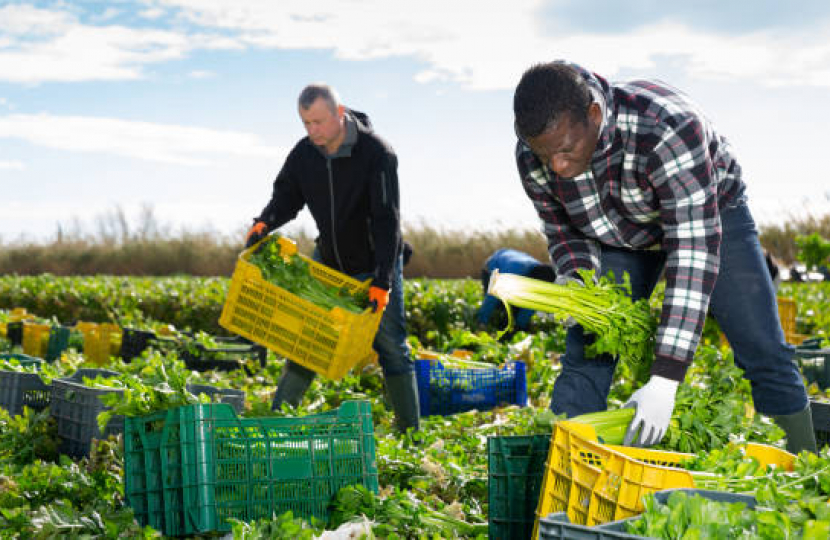
What constitutes a skill in the era of Artificial Intelligence? The government currently advocates a "skills-based" immigration policy, by which it means giving preferential treatment to people like lawyers or economists with a formal qualifications. It insists that robotics can replace what it deems to be "low-skilled" jobs like fruit picking.
But is its definition of "skilled" valid, or is it just a reflection of human social attitudes? If robots are the answer, then what does a skill look like through the eyes of a robot? As some of our most talented computer coders wrestle with the challenges involved in the deployment of robotic technology, they are discovering the answer: a robot finds human, dextrous skills far more impressive and far harder to replicate than cognitive skills.
For example, when a cricket player catches a ball, they are doing something quite extraordinary. They are predicting the future and intuitively working out where they need to be on the field, and what speed they need to run to get there, and then there is immense subconscious coordination to take the catch. In laboratory conditions, robots have been trained to catch a ball and even play table tennis, but it is remarkably difficult to transfer those abilities to a cricket pitch because the environment just becomes far too unpredictable.
In outdoor conditions, some fields are flat, others have hills. Crops have different varieties with different colours and characteristics. Some varieties of the same crop have more leaves than others. Often a gale of wind or a hailstorm can change the way the field looks, additionally, rain can cause light reflections which change the crop’s appearance.
If you were to stop a strawberry picker and ask them to move back three steps and explain why they knew that a particular fruit looked different because it was in the mottled shade and in an unusual location, they wouldn't even remember that they had made such a decision, but a robot agonises over such decisions and that is why the deployment of robotics for harvesting on the farm remains challenging.
I have no doubt they will get there eventually, but it will take many years to perfect, and the interim step is likely to be one where robots assist in improving harvest ergonomics but stop a long way short of direct labour replacement.
If fruit picking has a lot in common with catching a cricket ball, then at the other end of the spectrum being a solicitor or an economist has a lot in common with being a grand master in chess. From a human perspective, these are culturally considered to be skilled roles and are well-paid, but a robot might well consider these roles to be unskilled ones. The tasks they perform are essentially drawing information out of a rule’s engine. Many of their services could be delivered by AI. In addition, because these professions are paid more, the yield generated by displacing them with robots is higher than that associated with displacing lower-paid staff.
All of this has implications for immigration policy. If we see a greater role for robotics and AI in the years ahead, then we need to put greater emphasis on the importance of dextrous skills and less on cognitive skills.
We also need a system that is more responsive to the needs of the labour market. The current skilled occupation list includes solicitors, insolvency practitioners, librarians, museum officers and PR consultants, where there are no shortages at all, but excludes people with dextrous skills in sectors like the food industry where there are acute labour shortages.
The current policy is exacerbating inflation and can only be fixed by changing the way we define skills in our immigration policy or by accepting the need for more temporary visas in certain areas.

